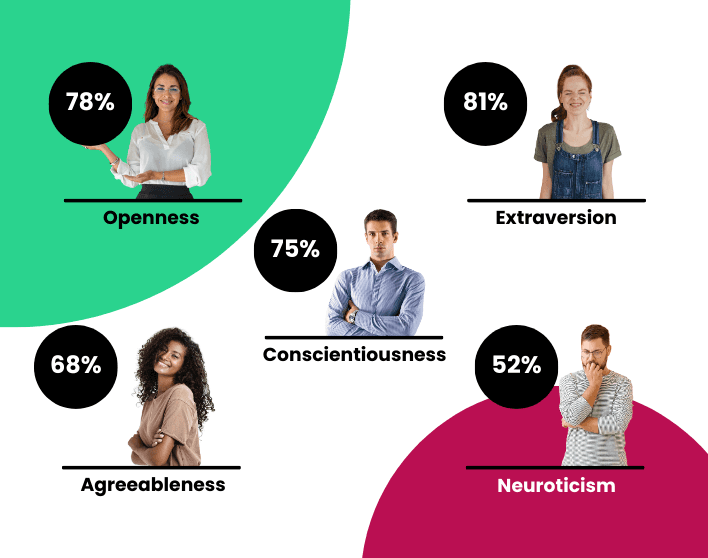The Bryq Team
HR Experts
With 2020 finally behind us, it’s time to look to the future to see what we can expect in 2021. HR professionals are particularly interested to see what recruitment challenges we are likely to face in the coming year.
Top 10 Recruitment Challenges of 2021
The use of technology in the workplace has risen dramatically, as has the number of staff members working from home. Some of that will continue well into 2021 and beyond, posing new recruitment challenges to HR teams. Below we have compiled a list of the top 10 recruitment challenges you can expect to face this year.
Candidate Experience
Candidate experience is usually somewhat unknown to recruitment teams. It’s time to start finding out how candidates find the experience of applying for a job with you. Many recruitment processes last year turned into a disaster with rapid changes occurring constantly. Now, you need to start focusing on candidate experience and making it a smooth process for applicants going forward.
Change in Employer Brand
In the past year, numerous businesses have changed their employer brand to be one that’s more empathetic and caring to their staff. With the start of the new year well behind us, HR teams are in charge of managing this new employer brand. You must come up with a plan to promote this latest facet of your brand and use it to entice qualified candidates into your company.
Internal Promotion
With hiring restarting for many organizations this year, the idea of internal promotion has come back to the forefront for recruiters. Consider promoting your staff into higher-level roles rather than looking outside the organization. This can increase morale, improve productivity, and you will have someone in the position who already knows your organization. However, the problem you will encounter with this is who to promote and then to replace that person in their previous role.
Remote Work
If your company had never had remote employees prior to 2020, it’s likely that the last year was a huge change. Many businesses have decided to continue having remote staff, as they were pleasantly surprised by the level of productivity achieved when people worked from home. For recruitment teams, this might mean that you are hiring permanent remote workers for the first time ever. You may need to update your recruitment strategies in accordance with this new ideal candidate persona.
Data
Leveraging data to improve your recruitment process will be an important aspect of improving it this year. Last year was the first time that many employers used digital recruiting technologies. The great thing about these tools is that they provide plenty of data on your recruitment processes. Look back and analyze the different aspects to find out where your gaps in recruitment are. As this will be new to many organizations, that’s why we think it is going to be one of the biggest recruitment challenges of 2021.
Diversity
Did your company post a black square for Black Lives Matter? Whether or not you commented publicly on the movement, it’s time to show your commitment to diversity. People are more ready than ever to call out companies who are not doing their part in becoming more diverse and inclusive. This is something to consider when hiring job candidates. Are you hiring based off skills and experience or your unconscious bias?
Seeking Different Skills
With the changes the past year has prompted in how we work, you’re likely looking for different skills in your staff than you were at this time last year. New skills that employers are now prioritizing are digital literacy, communication, interpersonal skills, and leadership skills. These are all abilities required even more in the digital age, and especially when the majority of your staff are working from home. This is another of our recruitment challenges, as we must find out how to screen candidates for these skills that we may not have considered before. AI, resume parsing, and pre-employment testing can all play a role in defining which may be the best-suited candidates due to their possession of the skills we are seeking.
Hiring Freezes
Due to the volatile climate we find ourselves in, many companies introduced hiring freezes last year. While things may be loosening, these may come back into effect if the pandemic situation worsens again. This may leave recruiters in the position of having available roles which desperately need to be filled, but they aren’t allowed to hire. HR teams may have even begun the recruitment processes for these but need to put them on hold.
Contacting Paused Candidates
If you did have a hiring freeze last year, you might have put some candidates on hold. Perhaps you had some excellent applicants but weren’t in the position to hire them at the time. Getting back in touch the right way presents a challenge to recruiters. You must contact them, acknowledging that their situation may have changed in the meantime, and apologizing for putting them on pause.
Change in Talent Pool
Your organization may be used to having an easily accessible talent pool of qualified candidates. However, due to the massive upheaval of the past year, many peoples’ situations have changed significantly. Your talent pool may have shrunk far more than you realize.
Related to your shrinking talent pool is the fact that any otherwise passive candidates may no longer be interested in moving roles. People who are lucky enough to have stayed employed throughout 2020 are likely to be more loyal than ever to their current employer. Fewer passive candidates can make it hard to find enough applicants for your positions.
Don’t forget that the new recruitment challenges of the past year have come with a lot of positives as well. Digital literacy is up amongst staff members, as is the rise in online communication skills. People have found ways of coping and developed new abilities while doing so.








